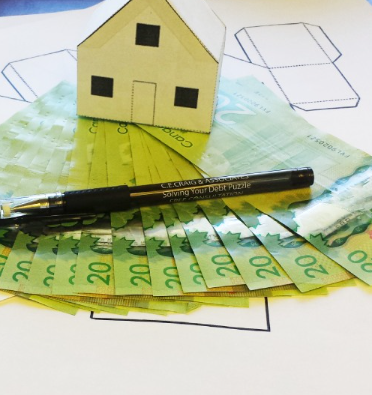
Life can throw unexpected challenges your way, and if you find yourself struggling to make ends meet, you might wonder what happens if you stop paying your credit card bills. Credit cards can provide temporary relief, but if you’re unable to keep up with payments, the consequences can quickly escalate. Whether you’re dealing with unexpected expenses or an ongoing financial struggle, it’s important to understand the potential impacts of missing payments on your credit cards. Here’s what you need to know about the repercussions of not paying your credit card in Canada.
What Happens If I Can’t Pay My Credit Card?
Missing a payment on your credit card is not ideal, but the severity of the consequences depends on how long you go without paying. If you miss one payment, you might face some minor penalties, but if you continue to miss payments over time, the consequences become more serious.
Interest Rate Increases
When you miss a payment, one of the first things that happens is an increase in your credit card interest rate, or APR. This can rise by up to 5%, making it harder for you to catch up. Some credit card companies may take up to a year of timely payments to reduce the interest rate again. Higher interest rates increase the amount you owe each month, which makes it more difficult to stay on top of payments.
Impact on Your Credit Score
When you miss a payment, the credit bureaus—Equifax and TransUnion—are notified, and your credit report reflects the late payment. This can negatively impact your credit score and may make it harder to obtain new credit in the future. If your payments are more than 30 days late, the impact becomes more severe, and multiple late payments can significantly damage your credit score over time.
Increased Payment Amounts
If you miss a payment, you may find that your minimum payment increases. For example, if you typically pay $50 each month and miss a payment, the next month’s minimum payment could be more than double. This includes the amount you owe from the previous month, the interest charges, and any overdue amounts. It can quickly become a snowball effect, making it harder to get back on track.
Can the Credit Card Company Take Money from My Bank Account?
If your credit card and bank account are with the same financial institution, your credit card company may have the right to take money directly from your bank account to cover your credit card debt. This is known as the “right of offset.” If you have an outstanding balance on your credit card, the bank can withdraw funds from your account, such as your paycheck or other deposits, to pay down the debt.
This can happen without warning and might leave you without enough funds for necessary expenses like rent or groceries. To avoid this, it’s a good idea to open a new bank account at a different financial institution where you don’t have any outstanding credit card debt.
What Happens If My Credit Card Debt Stays Unpaid for Months?
When your credit card bill remains unpaid for several months, the situation becomes more urgent. The balance will continue to grow due to accrued interest and missed payments, and you may lose access to certain perks, such as loyalty rewards or points. Your creditor will begin to make more aggressive attempts to collect the debt.
Collection Efforts
Initially, your credit card company will send reminder notices and make phone calls to ask for payment. If this doesn’t result in payment, they may block your card from being used for new purchases, including pre-authorized payments. This action limits your ability to use your credit card but doesn’t eliminate your responsibility to pay the balance.
If you don’t take action, your account may be handed over to a third-party collection agency, and the situation will become much more difficult to manage.
What Can I Do to Stop Worrying About Debt Collectors?
Once your debt has been passed to a collection agency, you’ll start receiving more aggressive contact, such as frequent phone calls and collection letters. At this stage, it may feel overwhelming, but it’s important to remember that you still have options. A collection agency might offer a settlement or ask you to pay the full amount immediately.
However, entering into a new payment arrangement with the collector is risky if you’re not confident you can follow through. If you fail to meet the terms, it could worsen your situation, and you may end up defaulting on another agreement.
How Can I Resolve My Credit Card Debt?
If your credit card debt has spiraled out of control, it’s time to seek a solution. There are various options available, such as negotiating with creditors to reduce your interest rate or settling your debt for a lower amount than you owe. In some cases, legal avenues may allow you to stop paying part of your debt or even discharge some of it through a formal debt settlement process.
It’s essential to take action before the situation gets worse. Seeking help from a credit counselor or financial advisor can help you understand your options and make an informed decision about your next steps.
Conclusion
Failing to pay your credit card bill can have significant consequences for your finances, including higher interest rates, a damaged credit score, and potential legal action. If you’re struggling with credit card debt, it’s important to take action as soon as possible to avoid further complications. There are resources available to help you manage and resolve your debt, and reaching out for assistance can be the first step towards regaining control of your finances.









